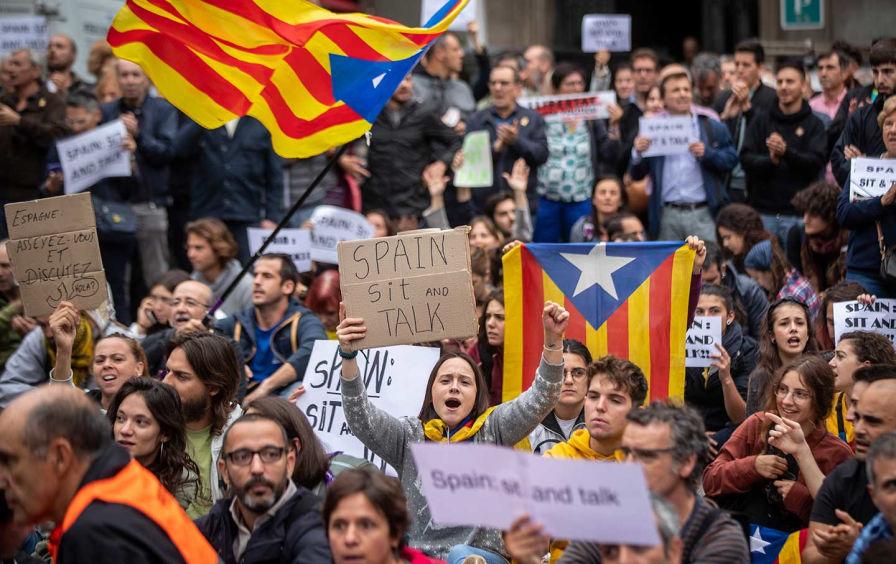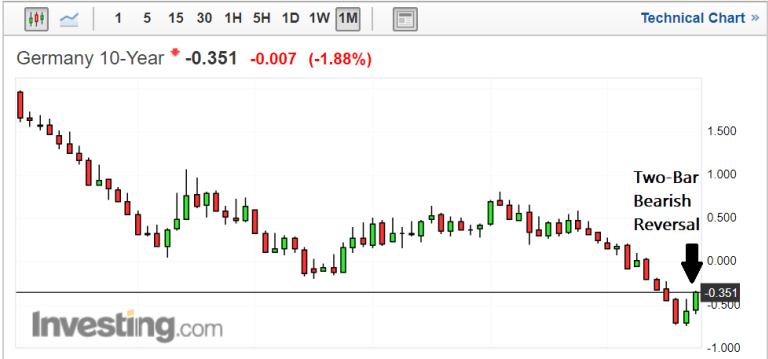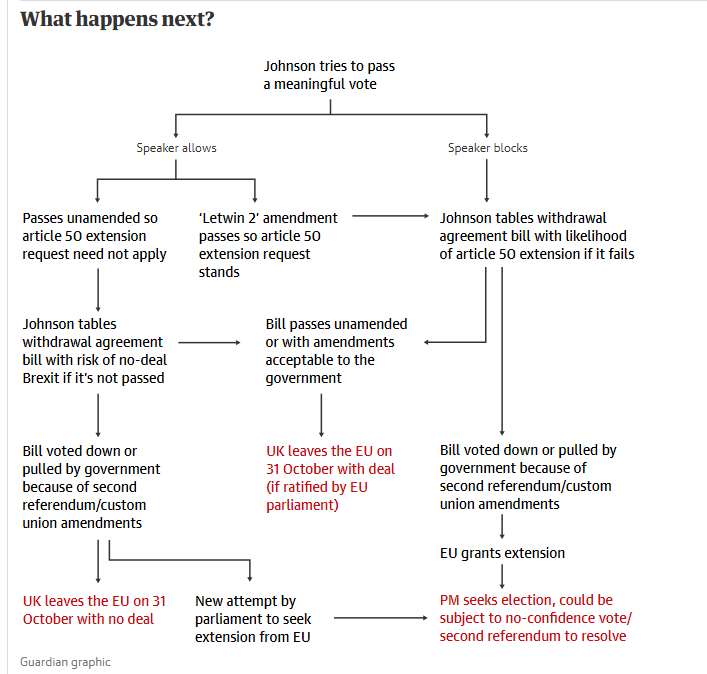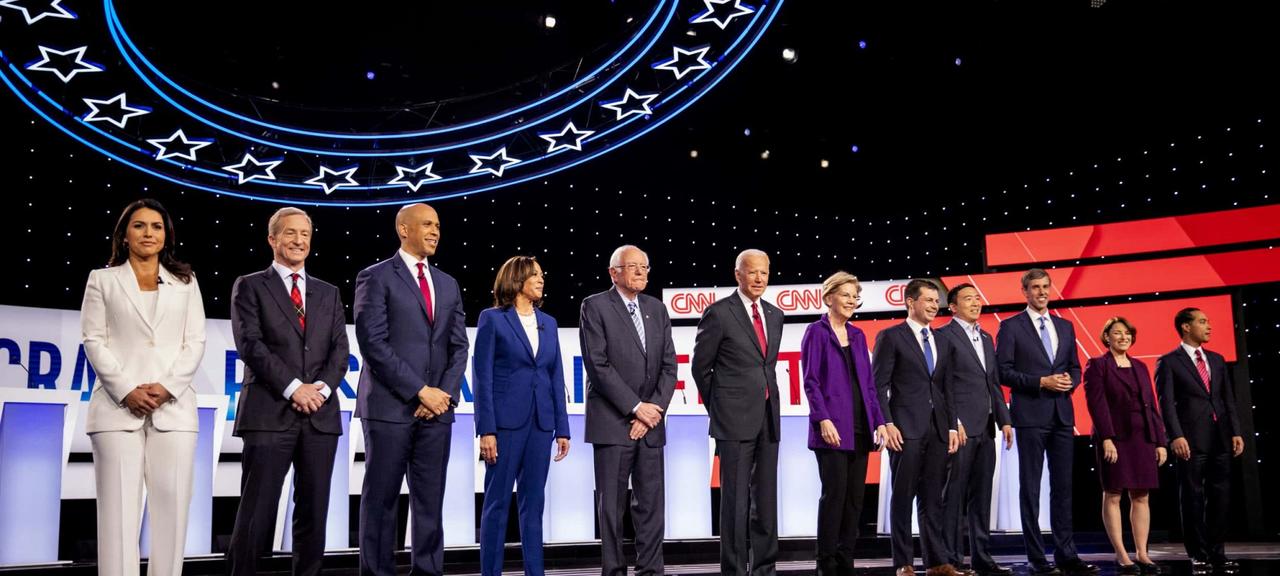Spain’s Catalonia Crisis Just Got A Lot Worse
Authored by Sebastiaan Faber and Bécquer Seguín via TheNation.com,
“Now that the verdict’s out, it’s time to start getting along,” Spanish Prime Minister Pedro Sánchez said at a press conference on October 18, repeating the rhyme—“después de la sentencia, convivencia”—as if it were a magic spell. Around the same time, half a million Catalans were converging on Barcelona, which for the previous four days had seen its airport occupied and highways blocked while violent clashes between protesters and riot police were increasing in intensity each night. Sánchez insisted on framing these clashes as an internal Catalan problem. “What’s at stake is not the territorial makeup of our country, but the Catalans’ ability to get along with each other,” he’d said a few days earlier.
One week of major protests, it appears, did not shake his government’s unwillingness to face reality: The Catalan crisis is something that affects the entire country, and it is far from over.
On October 14, the Spanish Supreme Court announced its much-anticipated ruling on the case against 12 Catalan leaders for their role in the 2017 referendum on Catalan independence. Nine were sentenced to between 13 and 9 years in prison; three more were sentenced to 18 months. The charges included sedition, misappropriation of government funds, and civil disobedience. Oriol Junqueras, the former vice president of Catalonia, received the longest sentence, 13 years, while eight other former Catalan ministers received sentences of 10-12 years and two civil society leaders, known as “the Jordis,” received nine years—all close to the maximum permitted by law. (For perspective, earlier this year the Supreme Court sentenced each of five men found guilty of a violent gang-rape—the “wolf pack” case—to 15 years in prison.)
The verdict was the culmination of a two-year process initiated in October 2017, when Spain’s attorney general brought charges for rebellion, sedition, and misappropriation that prompted a judicial investigation and a public trial involving hundreds of witnesses. Had the court found Junqueras and the other leaders guilty of the charge of rebellion, the sentences could have been as high as 24 years, among the most severe first-time prison sentences allowable in Spain (the 12 Catalan leaders have been in preventive custody since the charges were announced nearly two years ago). Seven other leaders, including former Catalan President Carles Puigdemont, escaped that fate by going into exile elsewhere in Europe.
Yet to the disappointment of some Spanish conservatives, the court concluded in its ruling that Catalonia’s 2017 bid for independence – which included acts of nonviolent protest, a vote to “disconnect” Catalonia from Spain that violated parliamentary procedure, an illegal referendum, and a declaration of independence that was immediately “suspended” – did not rise to the level of rebellion. In fact, the court agreed with the defense that the referendum and the declaration of independence were never more than symbolic gestures, meant to pressure the national government in Madrid into negotiations over Catalonia’s status within Spain. The declaration of independence, the judges wrote, was “symbolic and ineffective,” and “never had any practical concreteness.” The prospect of independence was no more than a “reverie,” they added, “an artful deceit to mobilize the citizenry.” “It is clear,” the court concluded, “that the rebels lacked the most elementary means to…subdue the [Spanish] state.… And they knew it.” The court was likely referring to the warning, issued before October 1 by then–Prime Minister Mariano Rajoy, that, were Catalan leaders to go through with the referendum, they would be charged and the region’s autonomy would be revoked.
The irony of the ruling is palpable to many Catalans and Spaniards alike. The trial made it all the way to the Supreme Court in the first place because it involved the charge of rebellion—a direct, violent, anti-constitutional challenge to the sovereignty of the state. Now, many observers say that the court’s ruling itself infringes on the sovereignty of the people: Its interpretation of “sedition”—a charge leveled at 9 of the 12 leaders on trial—appears to undermine the constitutional right to protest, possibly setting a troubling precedent, in which such a charge can be applied to such acts as organized attempts to block evictions. “The Court’s new description of sedition,” Joaquín Urías, professor of constitutional law, wrote in the magazine Contexto, “describes point by point any social campaign of civil disobedience.” This skewed interpretation of the law, he added, points to a political motivation: The court may be convinced that “its role is to save Spain’s sacred territorial unity by making an example out of those who dare challenge it.”
The ruling, for many, encapsulates the main problems with the current path of the Spanish legal system: growing restrictions on the right to protest and freedom of expression, as well as the judicialization of politics and the politicization of the judiciary. These developments harken back to the widely condemned “ley mordaza” (gag law), a criminal law reform in 2015 that gives the government the power to issue hefty fines for everything from “unauthorized protests” to photographing the police. (On Friday evening, police in Barcelona violently subdued and detained Albert García, a journalist from El País who was photographing their actions.) The ruling also revives anxieties over recent cases involving puppet shows, tweets, and song lyrics construed as “extolling terrorism,” a remarkably fuzzy legal category that has given prosecutors a green light to pursue heavy sentences.
Regarding Catalonia, one of the 17 autonomous regions in Spain’s quasi-federal makeup, the Spanish Supreme Court has been quick to step in, breaking with international legal precedent in Canada and the United Kingdom, where the courts have mostly seen questions of regional sovereignty as a political rather than a legal matter. In Spain, it was the conservative Partido Popular (PP) that first beckoned the courts to intervene. In 2006, it filed an appeal to the Constitutional Court to revoke Catalonia’s newly approved statute of autonomy, which had been jointly negotiated by the governing parties at the national and regional levels and approved by a regional referendum.
The court’s rejection of key elements of that statute, four years later, set off widespread protests in Catalonia. In the years that followed, pro-independence sentiment ballooned from around a quarter of Catalans to nearly half, a figure which, according to polls, still holds more or less true today. Pro-independence parties—which span the spectrum from conservative to left-radical—hold a narrow majority in the regional parliament. But discomfort with the Spanish state is more widespread. According to a late-September poll, around 70 percent of Catalans favor a referendum for self-determination, an option that is anathema to Madrid. And only a fifth of those polled believe the Supreme Court trial of the Catalan leaders has been fair.
Not surprisingly, last Monday’s verdict has unleashed a level of indignation that dwarfs the response to the Constitutional Court’s ruling nine years ago. Within hours of the verdict’s publication, thousands of citizens flocked to the Barcelona airport for an occupation that disrupted air travel for days. Since then, massive displays of peaceful protest, including a general strike on October 18, alternated with nightly acts of vandalism involving smaller groups of protesters who erected barricades, set dumpsters on fire, threw rocks, torched a dozen cars, and in some cases threw Molotov cocktails at riot police. The Catalan and Spanish police have reacted, according to Amnesty International and other observer organizations, with “excessive force” and “inappropriately deploying anti-riot equipment and munitions.” Rubber bullets—whose use is officially prohibited in Catalonia—have so far caused four protesters to lose an eye. Journalists trying to document police actions, like García from El País, have ended up clubbed or arrested.
The anger over police brutality is directed not just at the national leadership in Madrid but also at the Catalan government, which in a display of institutional schizophrenia encouraged citizens to protest the Supreme Court sentence while at the same time ordering the regional police to quash the protests. In fact, Catalan politicians—who after all were forced to admit during the trial that their promises had been empty—have lost much of their credibility and, with it, control of the situation. The coordination of the protests themselves has been diffuse. Some of the main actions, including the occupation of the airport, were directed through an app, “Democratic Tsunami,” whose origin is unclear and which can only be activated by direct contact with an already authorized user. On Friday, Spain’s national criminal court announced it would initiate an investigation of the Tsunami app for possibly aiding and abetting terrorism. Its websites in Spain were shuttered.
The Supreme Court’s verdict and the state’s reaction to the protests have sparked concern beyond Catalonia as well. On October 19, 42,000 people gathered in San Sebastián, in the Basque Country, to demand a political solution to Spain’s territorial question. A demonstration in Madrid calling for amnesty that drew 4,000 protesters ended in violent clashes with riot police. The newspaper Público reported that, once again, the police targeted journalists trying to cover their actions.
Meanwhile, many citizens and fellow journalists have criticized the mainstream Spanish media coverage of the protests. According to the journalist Miquel Ramos, the media have developed a taste for “riot porn.” Ramos also denounced the national media’s tendency to downplay the role of radical-right Spanish nationalists, whose actions have been legitimized by the rise of the far-right party Vox. On Spanish public television, he pointed out, militant right-wing groups brandishing neo-fascist paraphernalia have been euphemistically captioned as “constitutionalists” and “citizens with Spanish flags.” The media help shape Spaniards’ interpretation of the crisis but also reaffirm the country’s divergent universes. On October 19, for example, the front-page layout of the Madrid edition of the country’s largest paper, El País, was the same as the national edition—but the headline was not. “Violent Groups Extend Chaos in the Barcelona Downtown,” read the Madrid edition. The headline in the national edition said: “A Massive Pro-Independence March against the Supreme Court Verdict.”
All of this has taken place in the midst of an electoral campaign. On November 10, Spaniards will go to the polls for the fourth time in as many years, and the second time this calendar year, after attempts to form a progressive majority coalition failed. For the right, which continues to be haunted by corruption scandals, the escalation in Catalonia is a welcome opportunity to shore up votes. They have called for harsher measures in Catalonia, ranging from revoking its autonomy and taking over its regional police corps to declaring a state of exception.
Not to be outflanked in his commitment to Spanish unity, Socialist Prime Minister Sánchez, too, has tried to project the image of a hard-line nationalist, stubbornly sticking to the idea that this is a Catalan, not a Spanish problem. In the weeks leading up to the verdict, his government launched an international campaign to underscore the idea that Spain is a “consolidated democracy,” suggesting that anyone who dares doubt this fact is an “enemy of Spain.” Sánchez has refused to accept phone calls from Catalan President Quim Torra, demanding that Torra first “categorically condemn” this week’s “violence.” By “violence,” he was referring exclusively to the limited nightly acts of vandalism. Sánchez’s strategy, according to party leaders, has been to seek “moderation” in the face of extreme demands by conservative parties that he apply the National Security Law and invoke, like Rajoy did back in 2017, Article 155 of the Spanish Constitution, which would place the government of Catalonia in the hands of the central government in Madrid.
So far, the hard-line tactic seems to be working better for the right than for the center-left. The PP, which took a beating at the April elections, is once again rising in the polls. Sánchez’s Socialists are set to lose some seats, although they are still projected to receive the most votes. As in April, Sánchez is expected to fall well short of a majority in Parliament. A progressive coalition with Unidas Podemos, the anti-austerity party founded only five years ago, proved too difficult to achieve earlier this year. Having Podemos in charge of certain ministries, Sánchez claimed, would have caused him “sleepless nights.” He may well decide instead to try to strike an agreement with those to his right. Earlier this month, Albert Rivera, the leader of Ciudadanos (Citizens), a young neoliberal and Spanish nationalist party, announced that he would lift his veto on negotiating with the Socialists.
Sánchez, however, may simply turn to the devil he knows. The “chaos” in Catalonia might provide him the perfect excuse for a “grand coalition” between the Socialist Party and the PP in the name of national unity. The move would signal an apparent restoration of the constitutional order that Unidas Podemos and other progressive movements have sought to challenge since the indignados movement in the spring of 2011, which arose in the wake of the economic crisis, austerity measures, and government corruption.
The Catalan “threat” to that order, journalist Guillem Martínez wrote this past weekend, has come to play a role similar to that of ETA, the armed Basque pro-independence group, whose presence helped justify restrictions on constitutional rights for much of Spain’s 40-year-old democracy.
Tyler Durden
Tue, 10/22/2019 – 03:30
via ZeroHedge News https://ift.tt/35ZMRyn Tyler Durden













